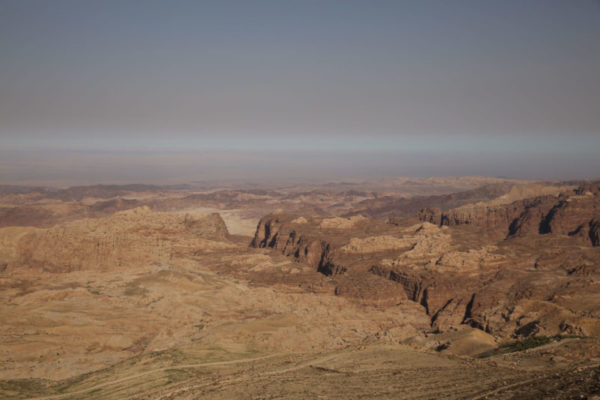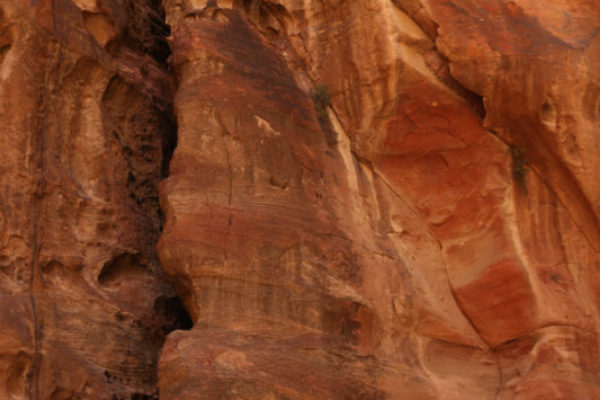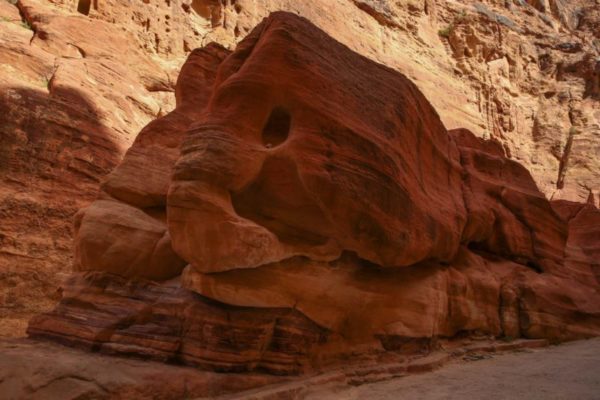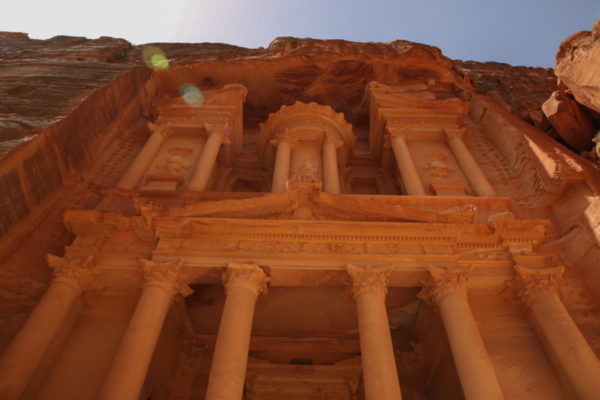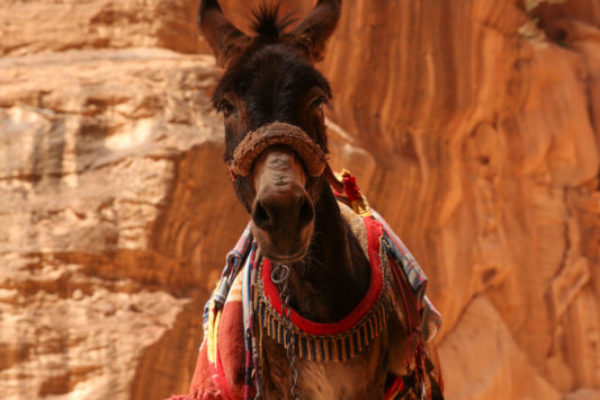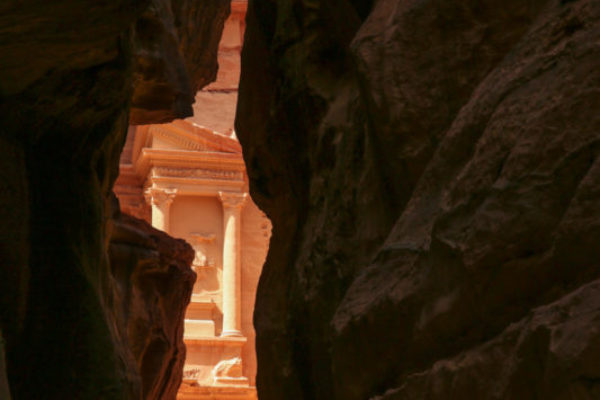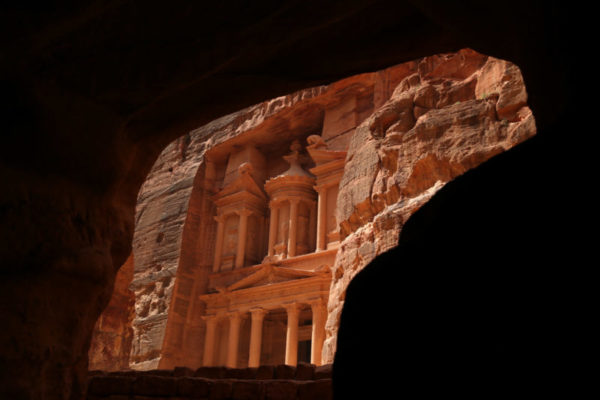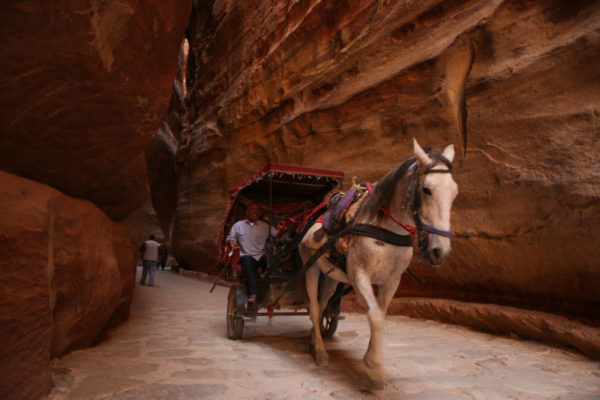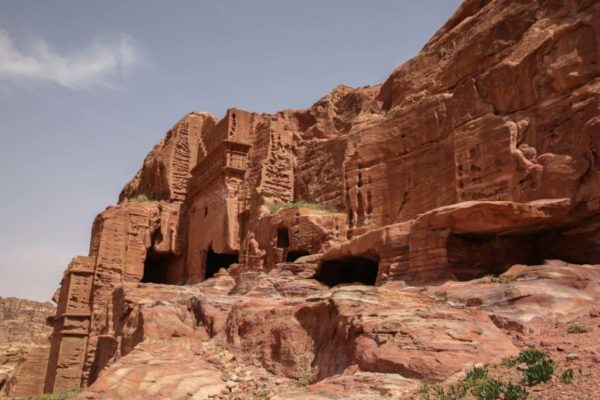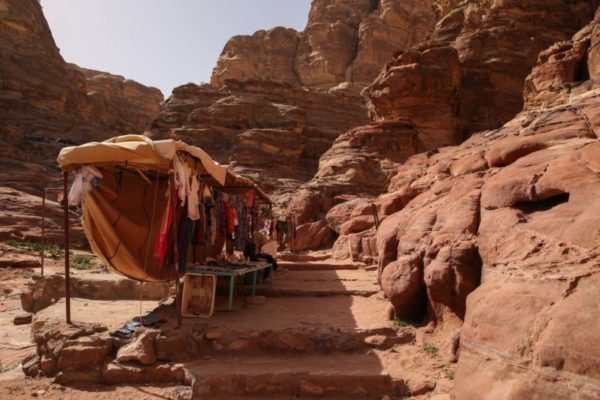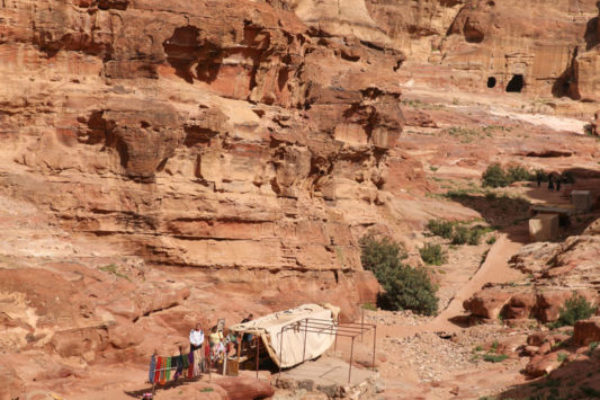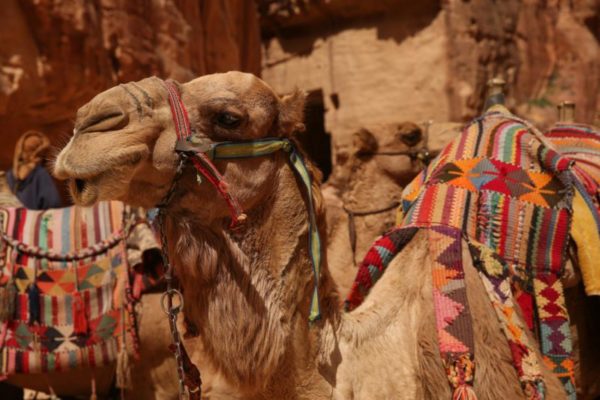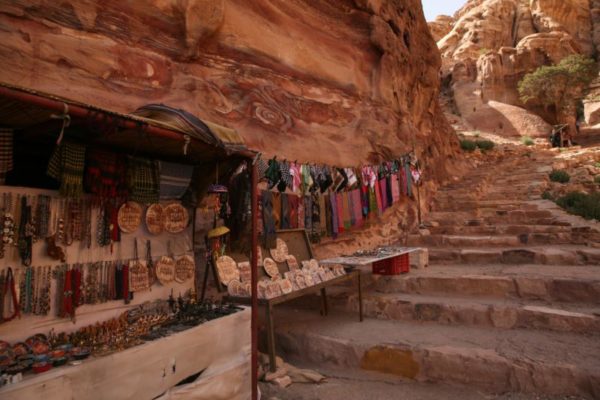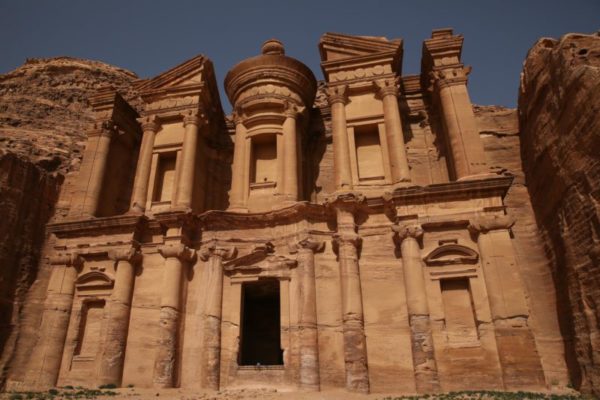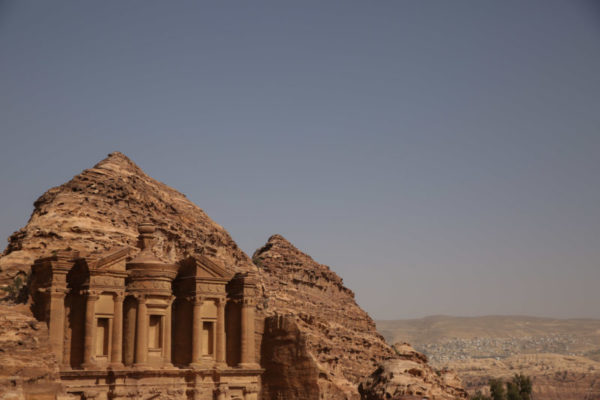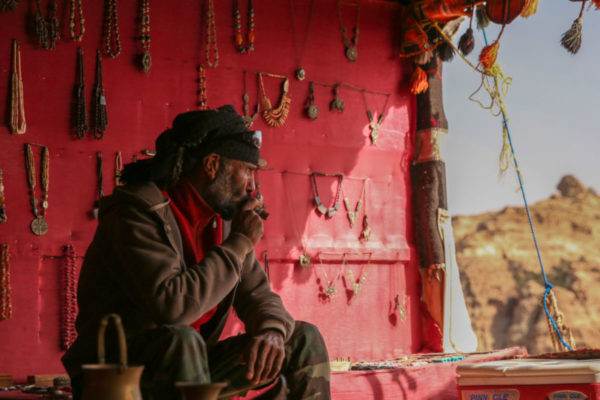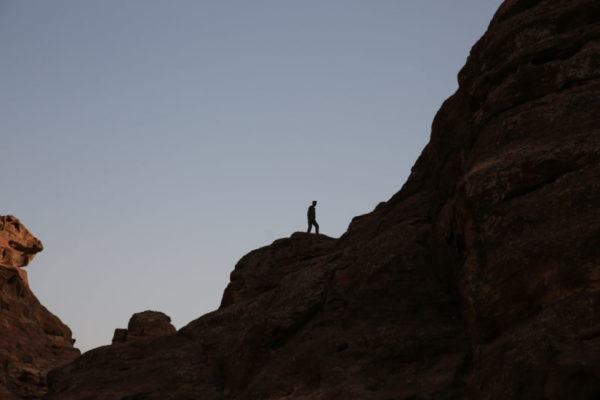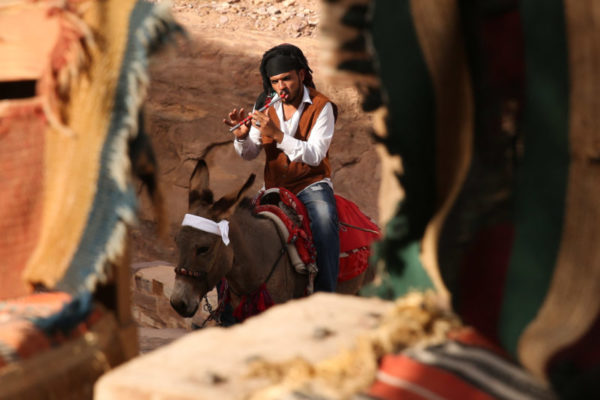Petra, the Rose City of Jordan
April 2016
When I was a little girl, Indiana Jones was my idol. He had so much style and swagger; his adventures to exotic places, his death-defying escapes from booby traps, his endless knowledge about history and legends, the casual white shirt that opened on his rugged chest, and of course, his whip. My favourite movie was the Last Crusade where Indy travels through a crescent moon valley and enters an ancient city carved into a mountain, in search of the Holy Grail. Little did I know that years later I would be standing in that very spot, about to enter the Rose City of Petra, Jordan.
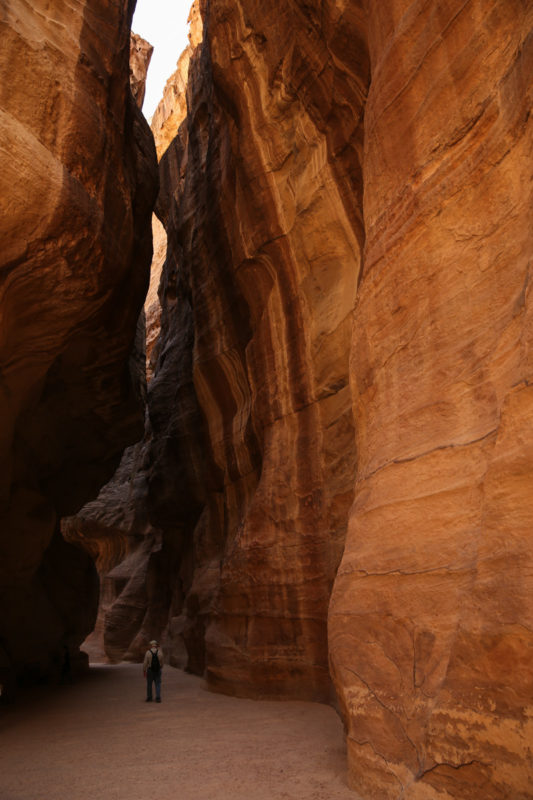
The path to the Treasury winds its way between towering rock face.
The adventure begins on a pathway nestled between towering sandstone mountains. Built in 300 BC, Petra was the centre of the caravan trade route for the ancient Nabataeans and the mountains are home to more than 800 tombs, the final resting places for revered families across the land. As we followed the Roman road built hundreds of years later, and still intact, haunting faces appear in the swirling colours of the rock and ancient inscriptions speak to a time long forgotten. It is dark and chilly as we wind our way down the narrow path.
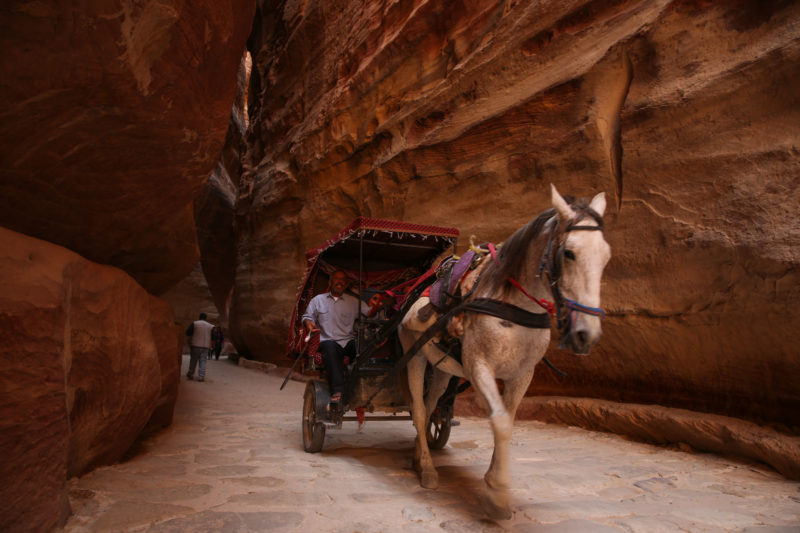
A horse pulls a carriage along the Petra Roman Road, weaving its way between the turns in the rock.
Then there is a sudden burst of light and as we step out into a wide opening, and as our eyes settle against the blinding sun, Petra’s most elaborate ruin Al-Khazneh looms before us. It is simply breath taking – smooth pillars lead to intricately carved ledges and it is hard to fathom how this was hand carved into the mountain more than a thousand years ago. Al-Khazneh is commonly known as the Treasury, earning its name from a legend that claimed bandits hid gold in the carved urn on the upper level. In reality it is a crypt, although the mythological creatures associated with the afterlife have long since weathered away.
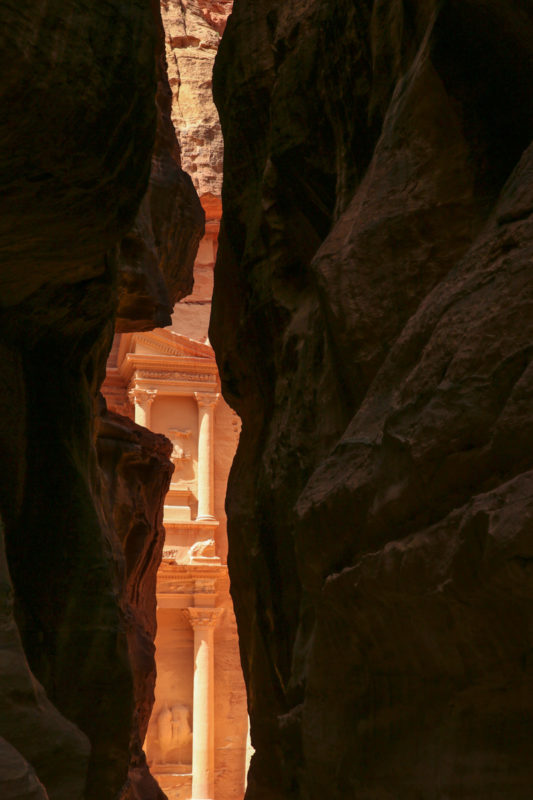
The first sliver of the Treasury, Petra’s most famous site, can be seen between a thin gap in the rocks.
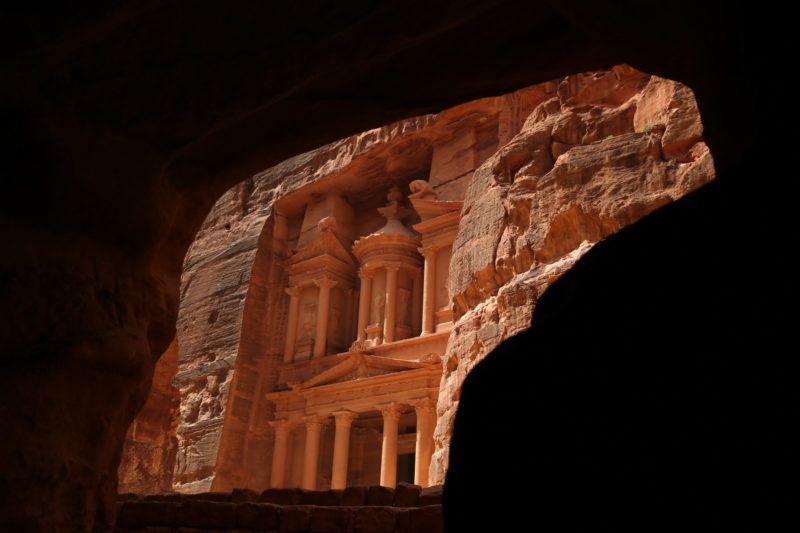
The Treasury as seen from a nearby cave.
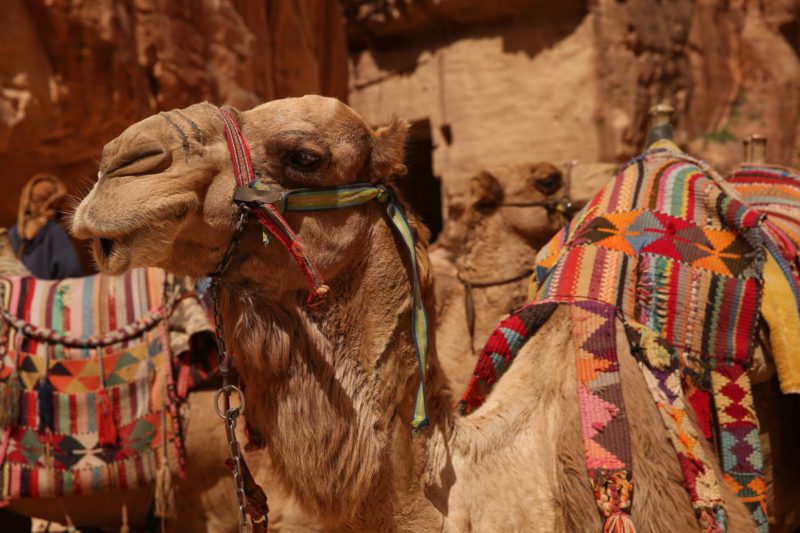
A camel puckers his lips for a photograph.
It is an incredible thought to look at the Treasury and try to imagine the people that built it, a portal into a time and space completely different to today. After time spent exploring the surrounds, re-enacting Indiana Jones scenes and exploring the markets, we continue down the gravelled path, passing donkeys and camels and a family enjoying a simple lunch on the rocks. A young Jordanian boy skips his way across the top of crumbling ledges and we are mesmerised as the city of Petra continues to unfold around us. Mysterious tombs and entrance ways pocket the mountains on all sides, elaborate carvings reach towards the sky, and swirls of red and purple decorate the sandstone rock. We continue up more than 800 steps to reach Ad Deir, the Monastery, and its smooth pillars are a stark contrast to the sharp and angled rocks that surround it.
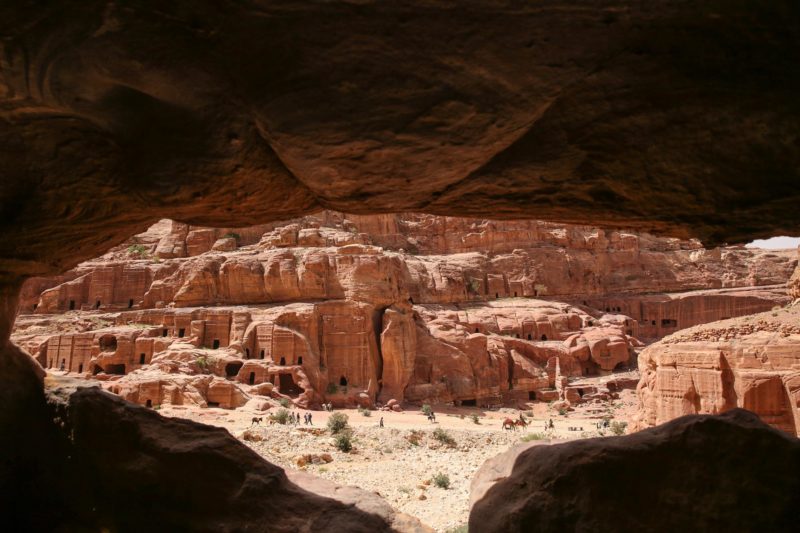
Tombs and caves line the mountain on both sides.
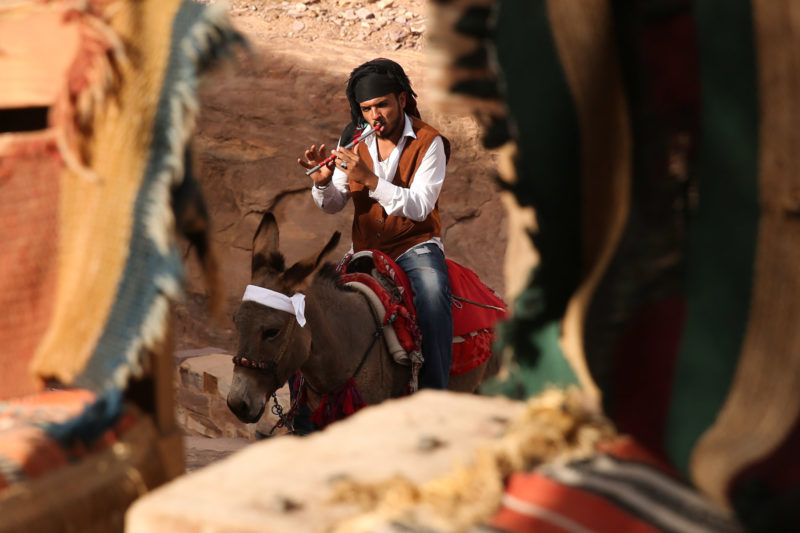
A young man plays the flute while riding a donkey to the Monastery.

The intricate carvings of the Monastery are a stark contrast to the rough rock that surrounds it.
At the top of the highest peak, we stop for a minute to catch our breath, enjoying a cup of sweet tea in the shade of a tradesman’s tent. The rocky desert expands all around us and I cannot help but feel incredibly small, a speck of dust in the sandstorm of history.
